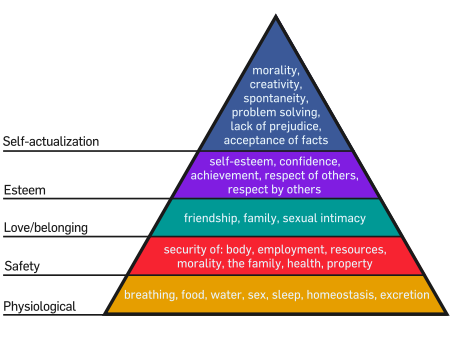This past week I had a really engaging conversation with someone about my job (I’m a social media specialist). He asked some interesting questions – things like, well, why has social media become so prevalent? What is it about tweeting and iterations of new technology that has consumers so entranced? I had one simple answer for him: it’s a part of our social psyche.
Why do people check-in? Why do they set up social profiles? Why do they blog? (If you’re a marketer, try not to rely on your own reasoning, it’s usually biased… I know I am!)
The impetus for the average user, though, is complex and simple at the same time. The reasons we engage on social networking sites draw from the principles of basic human nature.
Natural Law philosophers (like Aristotle) emphasize that “man is by nature a social animal; an individual who is unsocial naturally and not accidentally is either beneath our notice or more than human.” Social media gives us yet another outlet to be this “social animal.”
But, it’s more than just that. At the heart of it all is our need to expose our identity – to show who we are. Maslow’s hierarchy of needs shows us that self-actualization and esteem are both necessary components of a healthy life.
In fact, if we look at the top three levels of his hierarchy we can find many ways social media helps us to accomplish these needs. The third level of the model is made up of our social needs like family, love, relationships, work groups and community. The next level is more ego-driven needs, like our needs of achievement, responsibility and reputation. And at the top, there’s self-actualization as we mentioned before, which encompasses our personal growth and fulfillment.
Facebook, Twitter, LinkedIn, YouTube, Foursquare, etc. all give us the ability to send signals to others about our selves. Think about it. When we like a brand on Facebook, tweet a link, or even answer a question on Quora, we are helping to establish ourselves as a unique individual. When we share our thoughts via a blog we’ve just written or an intelligent tweet, we’re fulfilling our need to achieve and grow.
When we’re connecting with others via social networks, whether it be tweeting back and forth or commenting on an endless Facebook comment string, we’re achieving our social need to connect and be a part of the community.
So what does this mean for brands and marketers?
We need to help people not only identify with our brand, but we must also help them see a piece of themselves reflected in the brand. We don’t share a link or “Like” a brand to promote that company (again, unless you’re a marketer), rather we share these things because they ultimately say something about our identities, our priorities, who we are. We “Like” a brand or share something, because we want to connect with our community, be responsible and share our experiences with others.
For instance, one of my favorite social media campaigns since 2007 has been Liberty Mutual’s Responsibility Project, which coincided with their pass-it-on commercials. When I “Like” the Responsibility Project, I’m telling people that I like the idea of “passing it on,” that I identify with the notion that community members should look out for one another. In doing so, I’m also spreading the word about Liberty Mutual. If I didn’t identify with their message, I would never have liked or shared it.
There are certainly other reasons why people join and engage in social networking, and it’s important for marketers to know, understand and leverage them all.
What are some great campaigns that you identify with? Let us know by sharing your thoughts in the comments section below!
Photo Credit: Flickr User – Daigo Tanaka


